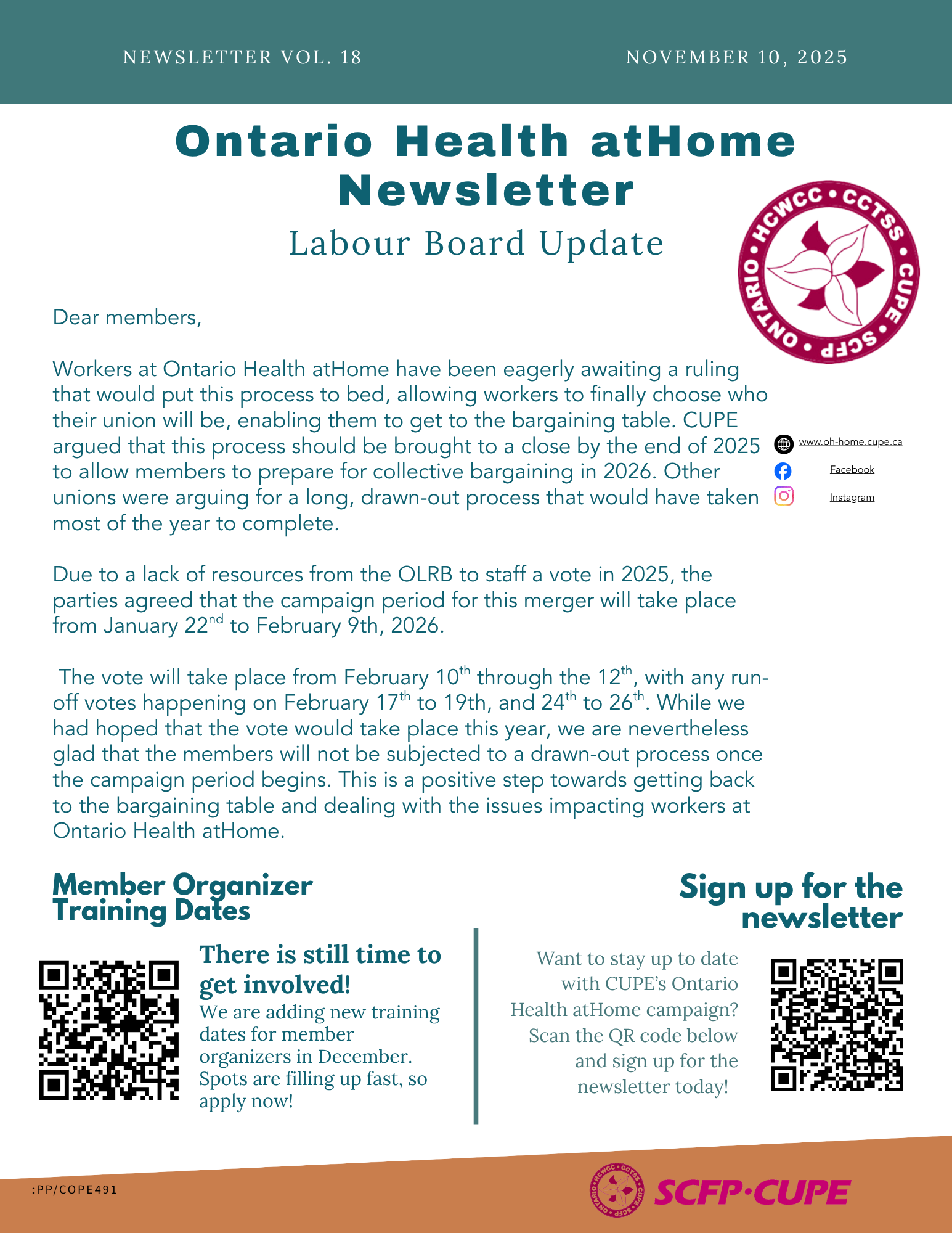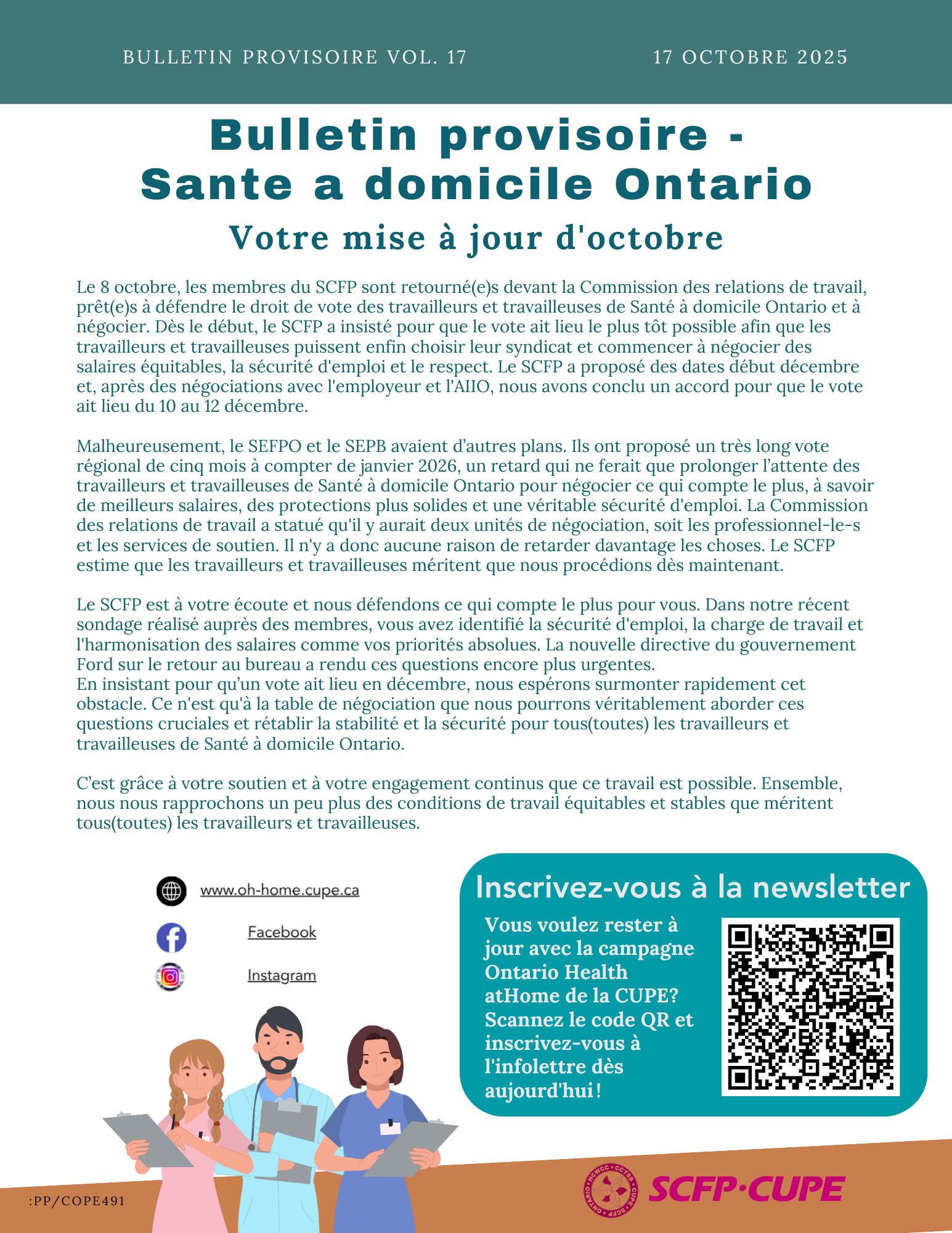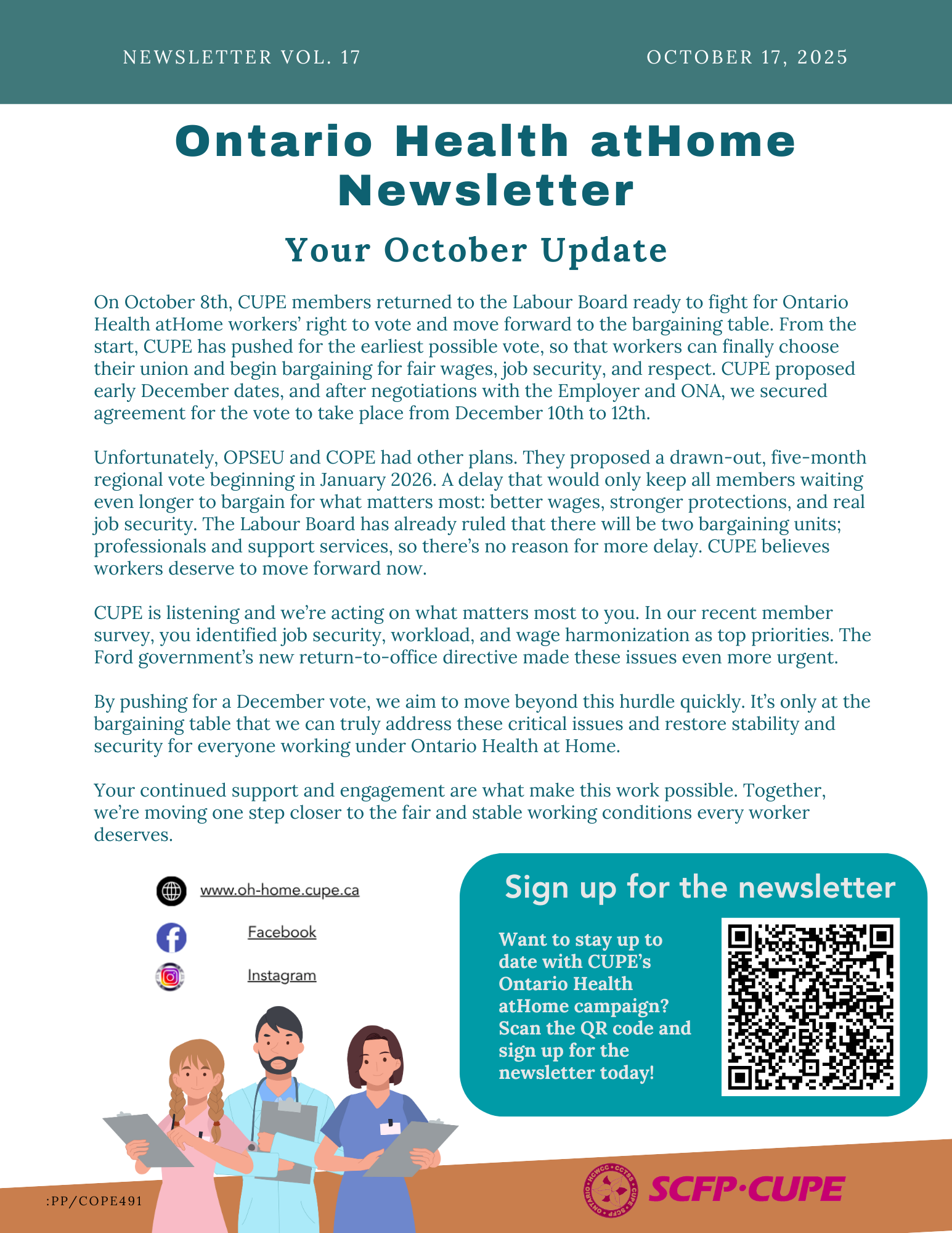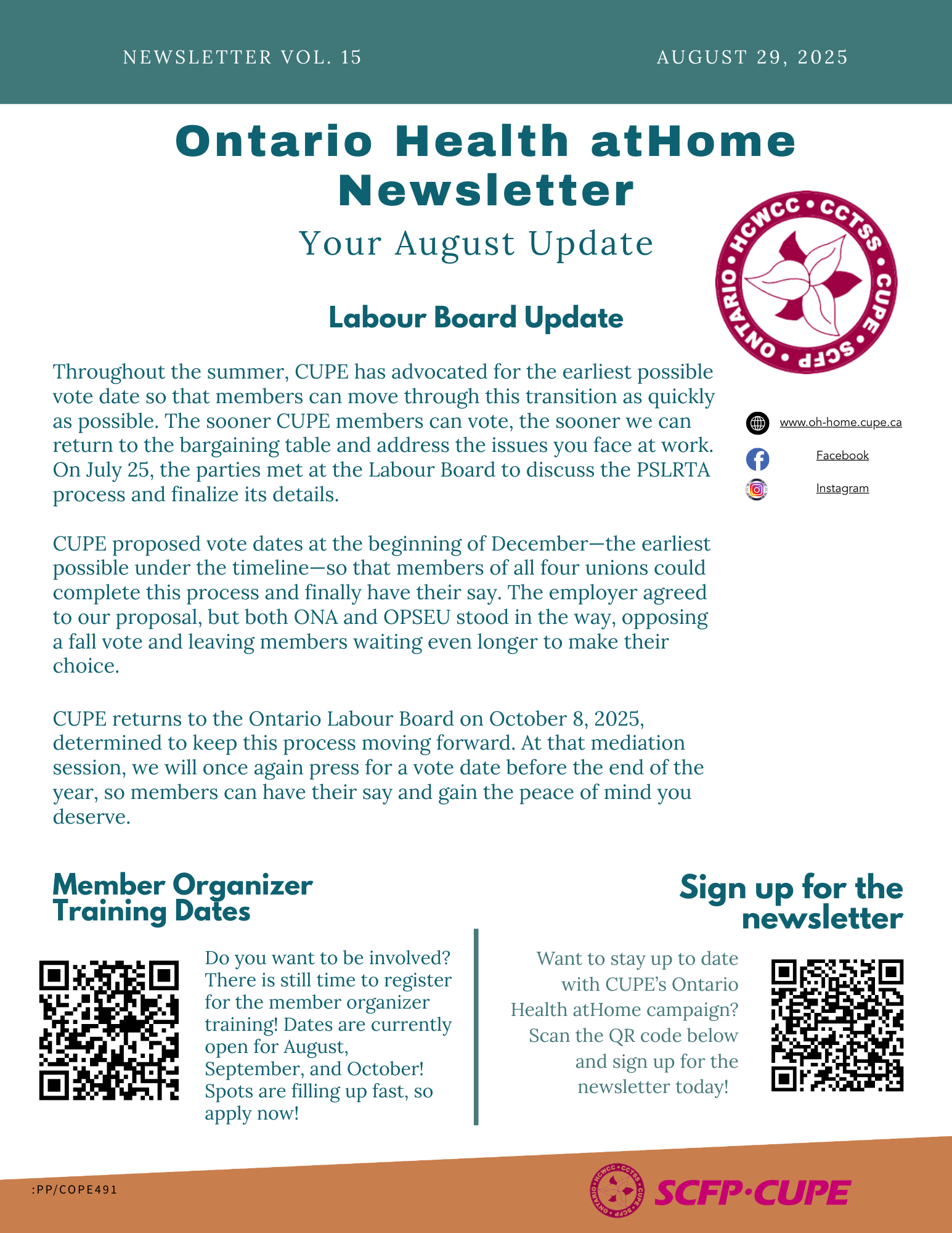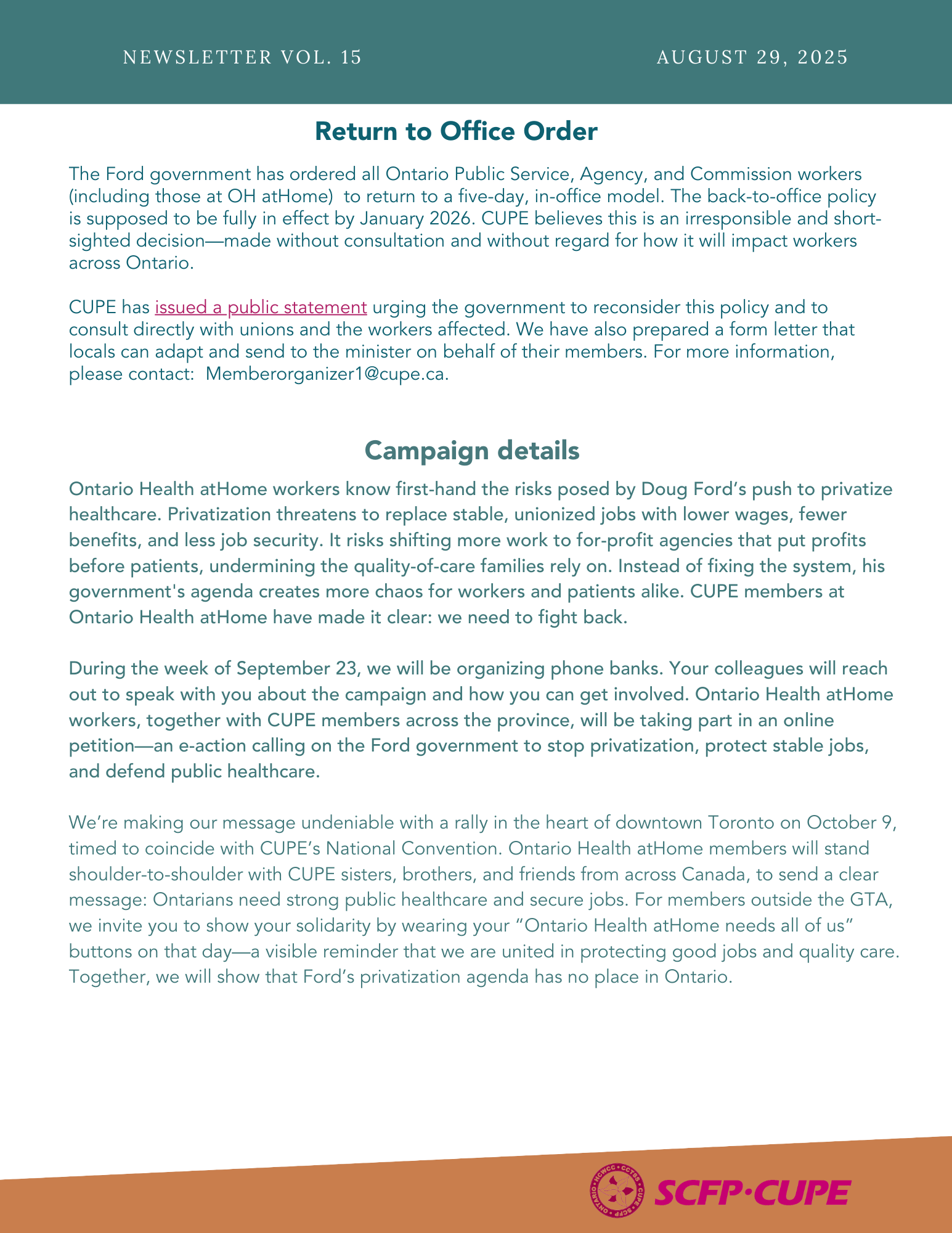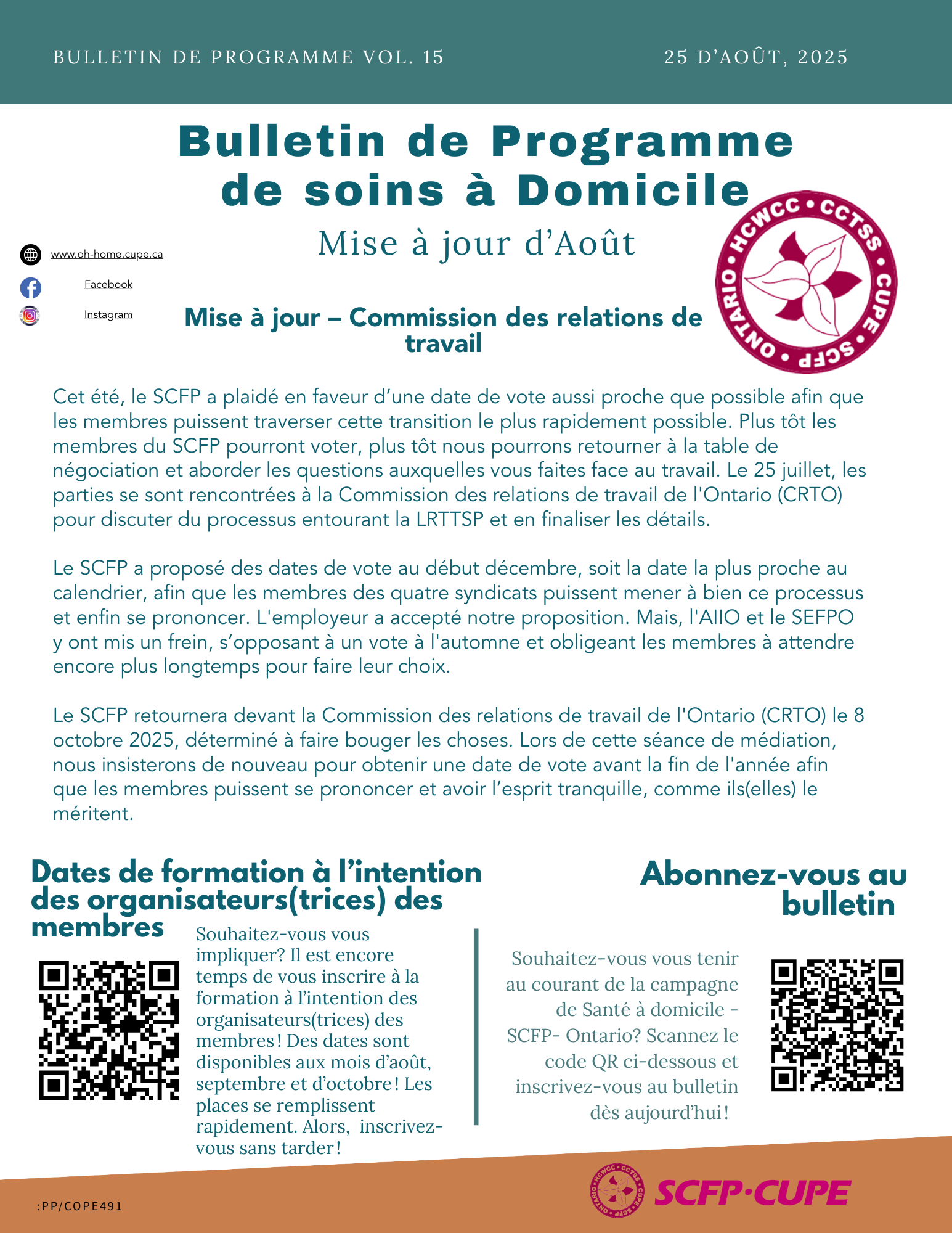 Les travailleuses et travailleurs de Santé à domicile Ontario ont reçu l’ordre de retourner au bureau à temps plein à compter du 5 janvier 2026. Malgré une réduction de l’espace de bureau depuis 2020, Doug Ford impose sa politique malavisée, mettant en péril les soins et la confiance des patient(e)s.
Les travailleuses et travailleurs de Santé à domicile Ontario ont reçu l’ordre de retourner au bureau à temps plein à compter du 5 janvier 2026. Malgré une réduction de l’espace de bureau depuis 2020, Doug Ford impose sa politique malavisée, mettant en péril les soins et la confiance des patient(e)s.
Les travailleuses et travailleurs de Santé à domicile Ontario sont passés à un modèle de travail hybride bien avant la fermeture due à la pandémie de la COVID-19, et cela a bien fonctionné. Les bénéficiares de soins à domiciles et leurs proches aidant(e)s peuvent compter sur des appels calmes et tranquilles avec leurs coordonnateurs et coordinatrices de soins et leur équipe de soins à domicile pour les aider à traverser certaines des périodes les plus difficiles de leur vie. Ce personnel seradésormais plutôt soumisau bruit de fond d’un bureau fort occupé où il a pas assez d’espace pour l’accommoder.
Pire encore, la mise en œuvre du retour au bureau a été inégale en Ontario. Certain(e)s travailleuses et travailleurs doivent se conformer pleinement à cette mesure, tandis que d’autres se font dire qu’ils(elles) ne pourront pas retourner au bureau. Cette application inégale a des répercussions sur le moral des travailleuses et travailleurs, qui se sentent méprisé(e)s et stigmatisé(e)s.
Le 5 janvier, les membres du SCFP de Santé à domicile Ontario organiseront des rassemblements à l’heure du dîner, devant leurs lieux de travail à la grandeur de la province afin de protester contre cette décision gouvernementale malavisée.
Inscrivez votre code postal pour trouver le rassemblement le plus proche de chez vous.


